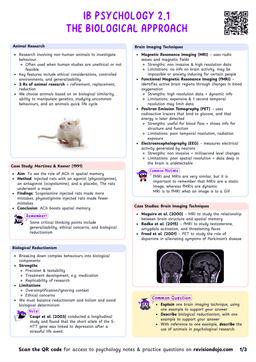Operationalization of Variables
Operationalization
The process of defining an abstract concept in terms of specific, observable, and measurable variables.
- In psychology, researchers often study abstract concepts like stress, aggression, or happiness.
- These concepts are not directly observable, so researchers need a way to measure them.
Imagine you want to measure how "fun" a party is. You can't directly observe "fun," but you could measure:
- The number of smiles per minute.
- The volume of laughter.
- The number of people dancing.
Why Operationalization Matters
- Clarity: Ensures that everyone understands what is being studied.
- Replicability: Allows other researchers to repeat the study using the same definitions.
- Objectivity: Reduces bias by providing clear criteria for measurement.
In Bandura's Bobo Doll Experiment, aggression was operationalized as:
- Physical aggression: Hitting or kicking the Bobo doll.
- Verbal aggression: Shouting aggressive phrases like "Sock him!"
How to Operationalize Variables
Define the Concept
- Start by clearly defining the abstract concept you want to study.
Stress: A psychological state characterized by feelings of tension and anxiety.
Identify Observable Indicators
- Determine what behaviors or physiological responses represent the concept.
Stress: Increased heart rate, elevated cortisol levels, self-reported anxiety.
Choose Measurement Tools
- Select tools or methods to quantify the indicators.
Stress: Heart rate monitors, saliva tests for cortisol, questionnaires.
Challenges in Operationalization
Subjectivity
- Some concepts are difficult to measure objectively.
Happiness: Self-reports may be biased by social desirability.
Validity
- The chosen indicators must accurately represent the concept.
Stress: Heart rate can increase due to excitement, not just stress.
Reliability
- The measurement tools must produce consistent results.
Self-report scales: Participants may answer differently on different days.
Observer ratings: Different observers may score behaviors inconsistently.
Bandura's Bobo Doll Experiment (1961)
- Aim: To investigate whether children imitate aggressive behavior observed in adults.
- Operationalization of Aggression:
- Physical aggression: Hitting, kicking, or throwing the Bobo doll.
- Verbal aggression: Shouting phrases like "Hit him down!"
- Results: Children exposed to aggressive models were more likely to display aggressive behaviors.
- Implications: Demonstrated the importance of operationalizing variables to measure abstract concepts like aggression.
Reflection
- How would you operationalize the concept of "motivation" in a study?
- What challenges might you face when measuring abstract concepts like "love" or "trust"?
- Why is it important for operational definitions to be both valid and reliable?


